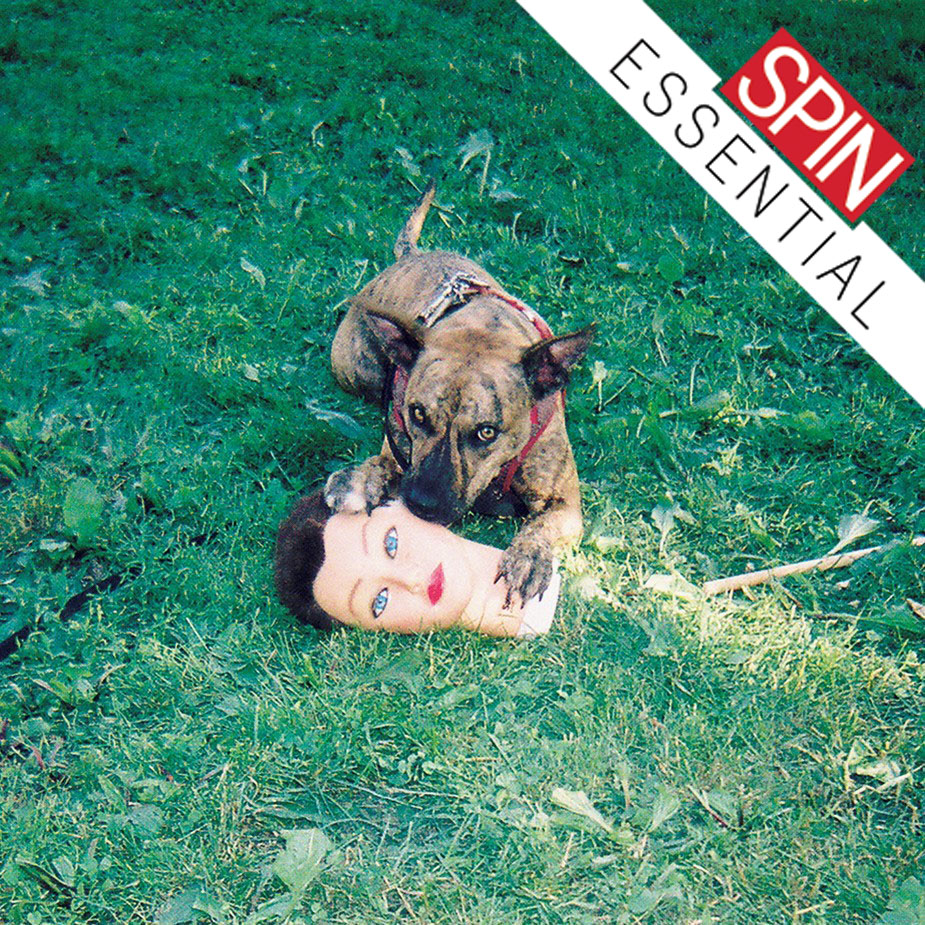Frontman Barry Johnson is not tired of talking about the most distinct line on Joyce Manor’s addictive new album, Cody, a record packed with immediately hummable, shoutable and/or tweetable lyrics. In fact, he hasn’t talked about it enough. “No one’s ever asked me, genuinely, what I think of Kanye West,” he recently groused, referring to the hook on “Fake I.D.,” in which the postmortem of a giddy hookup is a disappointing conversation about taste. Written from the perspective of a drunk and hot girl who thinks “Drunk and Hot Girls” is superior to The Grapes of Wrath and “Unfrozen Caveman Lawyer,” the lines are superb satire, exponentially more clever and only slightly more absurd than the actual hyperbole that’s become a steadfast presence of a typical media diet.
And yet, while Johnson has proven to be one of punk’s most astute observers of social interactions, the disbelief and incredulity at a mere mention of pop’s most talked-about figure doesn’t feel unwarranted. While Joyce Manor and tourmates like Modern Baseball and the Hotelier are making undeniably vital music, their scene’s increasing lyrical obsession with self-care, self-identification and scene ethics unwittingly justifies the reuse of “college rock” as an genre epithet for indie: well-meaning, but maddeningly earnest and insular, creating a dialog that judges the general public while keeping a safe distance from it. Hence, a context where it would probably be less weird for Kanye to namedrop a popular punk band in one of his songs than the other way around.
“Fake I.D.” has allowed hardcore fans and online rubberneckers alike the opportunity to judge the shit out of Joyce Manor. But that’s kind of the point, as Cody is the band’s most convincing attempt to place themselves in the pop culture discussion. It’s a sign of the times that a mere mention of Kanye is what counts as a potentially opportunistic maneuver, considering that Cody would’ve been subject to Dear You-esque pearl-clutching even ten years ago. The songs are slower and longer; Johnson’s voice has been scoured of its caked-on tar and grit; there are keyboards, and the studio wizardry of Rob Schnapf, a name producer. Schnapf has been deemed Joyce Manor’s honorary fifth member and he’s a worthy spiritual guide, having produced Saves the Day, Elliott Smith and Guided By Voices—a perfect stylistic triangulation for songs that are excitably emo, painfully wistful and possibly drunk before noon.
Johnson describes Cody as “more indie rock and less pure, unadulterated pop-punk,” stumbling upon the best possible descriptor: adulterated pop-punk. These are pop songs delivered with economy and urgency about punks entering adulthood—and despite their origins, there’s no reason to mistake Joyce Manor for anything besides a pop act. “People used to tell me, that I could buy and sell me,” Johnson spits on the spring-loaded “Reversing Machine,” one of the times where he’s finally narrating as “the guy from Joyce Manor.”
But his confidence is warranted: Whereas 2011’s Joyce Manor and even 2014’s Never Hungover Again could sometimes feel sheepish about their melodic gifts, Cody hard sells instantly memorable hooks at a time when such things are subdued on actual pop records. It dabbles in enough peripheral genres (alt-country, solo folk, power-pop) to get as “experimental” as it needs to be, though their song structures tend to be more unorthodox: “Reversing Machine” and “Eighteen” brace themselves for a massive second chorus that never comes, “You Make Me Dumb” turns a circle pit into a skip around the maypole and they don’t need to dwell on the Kanye line during “Fake I.D.”—the Teenage Fanclub-esque lead guitar riff provides an even stickier hook.
As Joyce Manor continue to evolve as musicians, their point of view crucially follows suit. While Cody is largely about post-collegiate transition to adulthood, a thematic thrust fitting approximately 90% of all indie rock records in 2016, Johnson doesn’t work in the theoretical realm. “One day, you wake up and things are different,” Johnson relates on the self-explanatory “Eighteen.” At the edge of 30, his perspective is more wizened than #feels, even if that’s not his most clever line. The song acknowledges how the problems that drove teens to Joyce Manor and pop-punk in general are very real, but tend to die of neglect. It gets better, but it also takes work and the solution—“it seems so simple when you step back and view it/just find something to do and then do it”—provides a real resonance at a time when empowering is becoming as lazily employed as “angular” and “Lynch-ian” once were in PR one-sheets.
If Johnson appears to be a role model on “Eighteen”, that makes it an outlier on Cody. While he played the easygoing, likeable mope that rattled through life on Never Hungover Again, Cody is more daring and complex document, bled through with cynicism and exhaustion. “Do You Really Want to Not Get Better” white-knuckles trying to empathize with an addict; “You Make Me Dumb” and “Over Before it Began” shrug at an inability to truly connect with others; the sex, LSD and alcohol intake on “Fake I.D.”, “Angel in the Snow” and “Reversing Machine” are sad and mundane.
And then there’s “Stairs”, Joyce Manor’s most adult song. Johnson wrote “Stairs” a decade ago and shelved it, only to have it revived after a solo tour with Hop Along’s Frances Quinlan, co-star of the Never Hungover Again album cover. “I’m 26 and I still live with my parents,” Johnson announces, sounding neither defiant, defeated or really much of anything except honest about a time that he’s put past him. It’s a love song, but also a codependence song. “Oh, I can’t do laundry, Christ I can’t do dishes,” he desperately moans, adulthood summarized as machinery slightly more complicated than a trash can and yet completely dumbfounding.
So just think of Kanye West as being a more famous version of a washer, leather jacket, heated swimming pool, train set or hastily conceived tattoo —something inextricable from the banality of daily existence from which Johnson derives insight that others just can’t access. “Last You Heard of Me” is easy enough to call “epic” as a joke—at three minutes and ten seconds, it’s virtually prog-rock for Joyce Manor. For the first half, it feels like the band killing time—the same “Santa Monica”-esque riff knocking back, forth and impatiently sideways as Johnson shuffles about a karaoke bar and towards the parking lot. And then, too bummed to smoke weed or engage in conversation, he meets the eyes of an ex, or more likely, a potential future ex. “And in the moment I see everything/start to finish/sad defeat/shivering, lying naked next to you/and that’s the last you heard of me,” he sings. It’s a passage of beautiful, heartbreaking economy, Johnson breaking his own heart in a matter of seconds—“For sale: baby shoes, never worn” by way of Pinkerton.
At moments like these, you have to wonder if Joyce Manor would have already made a current-day equivalent of a crossover if they presented as “sophisticated.” They did not graduate from art school, there are no harpsichords and they haven’t spent the past two years on Epitaph thumbing through Greg Graffin’s thesaurus. But “Last You Heard of Me” is the most potent example of the genius that’s always underscored Joyce Manor’s songwriting, vivid flash non-fiction cloaked as instantly gratifying pop-punk. It might seem like Cody has poor timing, released a week after secluded auteurs Bon Iver, Nicolas Jaar, Solange and Danny Brown (amongst others) made boundary-shattering, worldly documents that created new possibilities for what pop music can accomplish. But Cody provides necessary balance, documenting the small moments of dull life where the big picture becomes brilliantly clear.
Ian Cohen is a writer living in Lexington, Kentucky.





